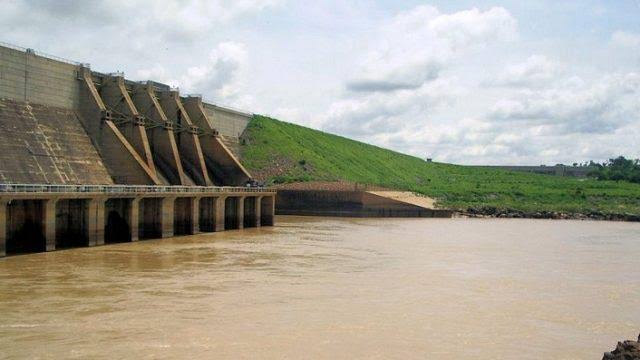In a bid to counteract the potential impact of an impending Lagdo Dam floodgate release, the Federal Government of Nigeria has called upon state governments located in flood-prone areas to take necessary measures.
The situation has been triggered by an official alert from Cameroonian authorities regarding their intention to discharge water from the Lagdo Dam. This directive comes as the country braces itself for the challenges posed by anticipated floods.
Latest Development
Dr. Betta Edu, the Minister of Humanitarian Affairs and Poverty Alleviation, emphasized the urgency of the situation during a significant meeting of the Presidential Committee on Coordination and Implementation held in the nation’s capital, Abuja.
She highlighted the imperative of translating policies into actionable steps and mobilizing rescue efforts to effectively mitigate the foreseen flooding consequences.
Addressing the issue, Dr. Edu expressed commendation for the state governments’ readiness in handling emergencies.
She further urged the Nigeria Governors’ Forum (NGF) to escalate actions by ensuring the immediate evacuation of Nigerians from vulnerable communities to safer destinations.
The release of water from the Lagdo Dam floodgate by Cameroonian authorities is expected to result in potential flooding across the frontline states within the next seven days.
Comments and Responses
Dr. Iziaq Salako, the Minister of Environment, echoed Dr. Edu’s sentiment. He noted that the Ministry of Environment has already initiated vital flood alerts, providing timely updates on the water levels of both River Benue and River Niger.
This initiative aims to keep the public informed about the vulnerability status of the affected regions. Dr. Salako unveiled an information platform designed to disseminate regular and real-time flood warning alerts to environmental correspondents, reducing the need for direct ministry involvement.
In alignment with these views, Prof. Joseph Utsev, the Minister of Water Resources and Sanitation, emphasized the shared responsibility between the government and citizens.
Prof. Utsev underlined his ministry’s commitment to constructing dams and dredging rivers across the nation. The overarching goal of these efforts is to permanently put an end to the recurring menace of annual floods, which have claimed numerous lives and properties.
Possible Predictions
Looking ahead, as the release of water from the Lagdo Dam draws nearer, it is anticipated that the affected states will experience significant challenges due to the impending floods.
The preparedness of state governments and their ability to efficiently evacuate vulnerable communities will play a crucial role in minimizing the impact.
Additionally, the government’s implementation of concrete measures, such as the construction of dams and river dredging, is expected to yield positive results in the long term.
However, the success of these efforts will depend on effective coordination and sustained commitment to the cause of flood prevention.
In conclusion, as Nigeria gears up to face the impending floods, the collaboration between government bodies, local communities, and citizens at large will be instrumental in mitigating the potential consequences and ensuring the safety and well-being of the nation.












